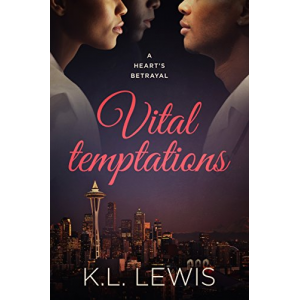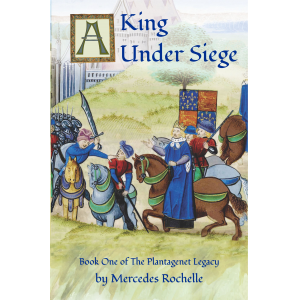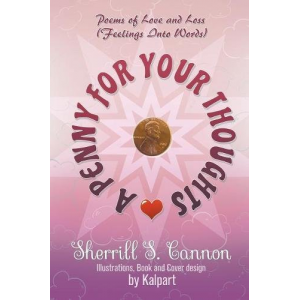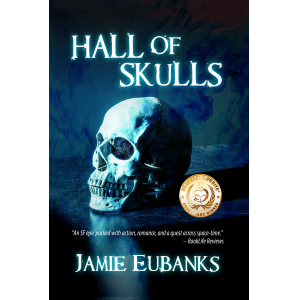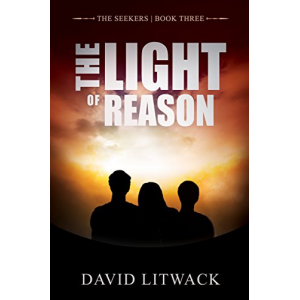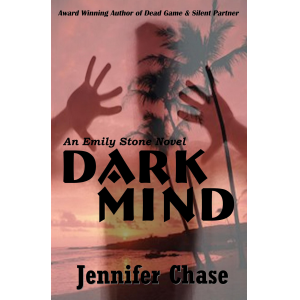- Author
- Book
- Story behind the book
- Media Links
- Reviews

Brian Courtney
About
Once upon a time, in 1973, a child was born in a majestic land where mountains extended further than the eyes can see. Born during a time of peace and prosperity there weren't any great kings or really any decent leadership of any kind. These leaders led the child and those like him to believe that all of the fights and revolutions had been won, that there wasn't any reason to fight. The people had already fought and won the battles for their freedoms, their civil rights, equality, the environment and the like. As a citizen of Generation X, the child had no purpose other than basking in the victories of those that came before him and maintaining the freedoms that they had won...
Brian Courtney is a Colorado native and self-proclaimed Iconoclast who enjoys reading and writing, the great outdoors, camping and banging his Jeep around on some nasty trail. Some of his favorite and most inspiring authors include Kerouac, Orwell and Dostoyevsky. Brian has written Op/Ed pieces, poetry and his own comedy routines for standup comedy and of course correspondence to elected officials. When he isn't working, Brian tries to spend as much time as possible in the mountains, camping, drinking and 4-wheeling.
Visit Shelfari.com to add or edit your Book Extras. Learn More
Characters/People
Add content for this section on Shelfari.Ridiculously Simplified Synopsis
Add content for this section on Shelfari.Summary
Quotations
Add content for this section on Shelfari.Settings & Locations
Add content for this section on Shelfari.Glossary
Add content for this section on Shelfari.Organizations
Add content for this section on Shelfari.Awards
Add content for this section on Shelfari.Themes & Symbolism
Add content for this section on Shelfari.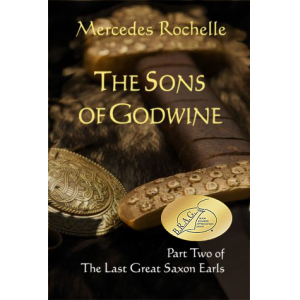
The Sons of Godwine: Part Two of The Last Great Saxon Earls
Description
<p>Emerging from the long shadow cast by his formidable father, Harold Godwineson showed himself to be a worthy successor to the Earldom of Wessex. In the following twelve years, he became the King's most trusted advisor, practically taking the reins of government into his own hands. And on Edward the Confessor's death, Harold Godwineson mounted the throne—the first king of England not of royal blood. Yet Harold was only a man, and his rise in fortune was not blameless. Like any person aspiring to power, he made choices he wasn't particularly proud of. Unfortunately, those closest to him sometimes paid the price of his fame.<br /><br />This is a story of Godwine's family as told from the viewpoint of Harold and his younger brothers. Queen Editha, known for her Vita Ædwardi Regis, originally commissioned a work to memorialize the deeds of her family, but after the Conquest historians tell us she abandoned this project and concentrated on her husband, the less dangerous subject. In THE SONS OF GODWINE and FATAL RIVALRY, I am telling the story as it might have survived had she collected and passed on the memoirs of her tragic brothers.<br /><br />This book is part two of The Last Great Saxon Earls series. Book one, GODWINE KINGMAKER, depicted the rise and fall of the first Earl of Wessex who came to power under Canute and rose to preeminence at the beginning of Edward the Confessor's reign. Unfortunately, Godwine's misguided efforts to champion his eldest son Swegn recoiled on the whole family, contributing to their outlawry and Queen Editha's disgrace. Their exile only lasted one year and they returned victorious to London, though it was obvious that Harold's career was just beginning as his father's journey was coming to an end.<br /><br />Harold's siblings were all overshadowed by their famous brother; in their memoirs we see remarks tinged sometimes with admiration, sometimes with skepticism, and in Tostig's case, with jealousy. We see a Harold who is ambitious, self-assured, sometimes egocentric, imperfect, yet heroic. His own story is all about Harold, but his brothers see things a little differently. Throughout, their observations are purely subjective, and witnessing events through their eyes gives us an insider’s perspective.<br /><br />Harold was his mother's favorite, confident enough to rise above petty sibling rivalry but Tostig, next in line, was not so lucky. Harold would have been surprised by Tostig's vindictiveness, if he had ever given his brother a second thought. And that was the problem. Tostig's love/hate relationship with Harold would eventually destroy everything they worked for, leaving the country open to foreign conquest. This subplot comes to a crisis in book three of the series, FATAL RIVALRY.</p>
Story Behind The Book
Media Links
Reviews
<p align="left">“Echoes of Cormac McCarthy, whispers of Bukowski in a nascent Orwellian 1984-world, Off the Grid introduces Pan, a John Galt for the Everyman anarchist, in a near-future that’s frighteningly plausible.” (S.E. Whelan, Meson Media)</p> <p align="left">From the opening chapter we are invited to meet "Pan", and in Brian<br /> Courtney's masterfully crafted debut novel that follows, though we may<br /> never know his given name, we come to deeply know Pan and who he is<br /> struggling to remain as the world around him begins to crumble. Off the<br /> Grid: The Catalyst chronicles the journey of the man who goes by Pan, as<br /> he moves through the levels of corruption and stands on the precipice of<br /> the world he inhabits, yet how deep that ravine will go we have yet to<br /> realize.<br /><br /> Pan lives in the shadows, at the end of a nearly abandoned street<br /> inhabited only by those whom this world has forgotten. And though Pan<br /> may be forgotten, he finds himself bearing witness to the flow of<br /> history in the wrong direction. He watches an abusive and corrupt police<br /> presence lead to the mysterious deaths of his neighbor and a homeless<br /> man, his neighborhood about to be bought and sold en masse for<br /> gentrification or worse, a city-wide road construction project with<br /> nefarious ends, mass deportations, and as the stakes continue to build,<br /> an event dubbed the Massacre on the Mississippi which then reveals the<br /> nail in the coffin - the government initiative LifeLine, a program to be<br /> able to track, and ostensibly save, anyone at anytime. Present<br /> throughout are the women in Pan's life, Natalie, and Darcy, themselves<br /> perched between the powerful flow of history against the painful ebb of<br /> what is right.<br /><br /> Pan is in constant battle with a looming presence that manages to be<br /> both mysterious and manifest throughout the work. It is the "they", the<br /> world on the horizon that others before have termed Babylon, the<br /> Machine, the powers that be ... it is the great beast whom Pan simply<br /> calls The Institution. And it is the dichotomous split between Pan and<br /> the Institution at the heart of the novel that allows it to achieve its<br /> ambitious scope. Both are ever-present and yet always enigmatic. Details<br /> of who Pan is, who he used to be, and what he is planning are meted out<br /> in careful measure as the story builds upon itself.<br /><br /> Timely and relevant in an ever-shifting post 9/11 landscape, Off the<br /> Grid addresses the rise of anatomical technologies, state control masked<br /> as security, and the proliferation of invisible surveillances. With<br /> deeply rooted philosophic foundations the book is underscored by an<br /> exploration of the existentially dislocated masculinity of the modern<br /> world, as Pan struggles deeply with what he calls "the void" inside.<br /><br /> Courtney confidently interweaves the political and the comedic alongside<br /> Pan's narrative to achieve an elusive literary layering, and in-so-doing<br /> manages to find a voice for that ineffable void within Pan, a voice that<br /> proves singularly unique, with an unexpected tenderness, and always<br /> punctuated with a striking wit. Pan's ornery sarcasm drips off the page,<br /> makes you laugh-out-loud, and you will find yourself rooting for him<br /> from the start.<br /><br /> The world that Pan inhabits is precarious, tychistic, and rapidly<br /> slipping through his fingers. Everywhere he turns are reminders that the<br /> change around him is reaching its apex, and if he isn't careful he will<br /> not be forgotten, but worse, he will join the ranks of the disappeared,<br /> as he begins to uncover the truth of LifeLine, whose origins are<br /> reminiscent of a pre-engineered Patriot Act, awaiting the political<br /> opportunity that 9/11 provided. Teeming with suspense and a building<br /> tension from the opening pages we are left in constant anticipation<br /> about whether Pan is guiding his own fate or being pulled in by the<br /> undercurrents. With a sense of desperation and urgency off-set by an<br /> eerie ominousness, we know that everything churning underneath for Pan<br /> is about to boil over.<br /><br /> The author never falls prey to literary archetypes or cliche, as he has<br /> artfully written characters who are always fully realized, even when not<br /> fully likeable. Pan is magnetic, full of contradiction, and might yet<br /> have an ace or two up his sleeves. Pan struggles to find a balance<br /> between his passion and his nihilism as he confronts the system that<br /> demands that choice. Fight, or be forgotten. Love, or walk away. Pan<br /> will constantly surprise you, and you will find that the void within him<br /> finds a foothold in you as he wrestles with those choices.<br /><br /> Pan struggles to decide if Darcy, a woman from great privilege and the<br /> superficiality that comes with it, herself full of contradiction, will<br /> ever be able to cross the divide between them and come to see some of<br /> the truths Pan has uncovered. The themes of the book are masterfully<br /> layered throughout as Pan questions whether Darcy could possibly fill<br /> that void, or will only add to it, and that conflict is echoed in his<br /> dealings with The Institution.<br /><br /> Not ever fully sure if Pan is one step behind or one step ahead of how<br /> his world is folding down around him, and never sure of what fate awaits<br /> him, the reader comes to deeply care for Pan. You are infuriated by the<br /> injustices levelled against him, and fearful of the sway of forces that<br /> surround him. Pan is the kind of figure who is alone in a room full of<br /> people, and you feel a painful longing for him to find reprieve from his<br /> isolation, for a connection that is meaningful. Yet through it all, we<br /> also trust Pan, that he might yet find his way out, find himself, and<br /> might yet be smart enough to make it.<br /><br /> Structurally reminiscent of Orwell, littered with a sensory imagery that<br /> recalls Hemingway, and punctuated by graphic sex for good measure, Off<br /> the Grid is a heartbreaking work of fiction that eludes easy<br /> categorization. It is reverential, remorseful, tragic, deeply nostalgic,<br /> yet always entertaining. Off the Grid is sure to alienate all the right<br /> people as it proves itself an important addition to the conversation.<br /> Pan will stay with you, and his journey will continue to haunt you. (Jessica Corin)</p>
